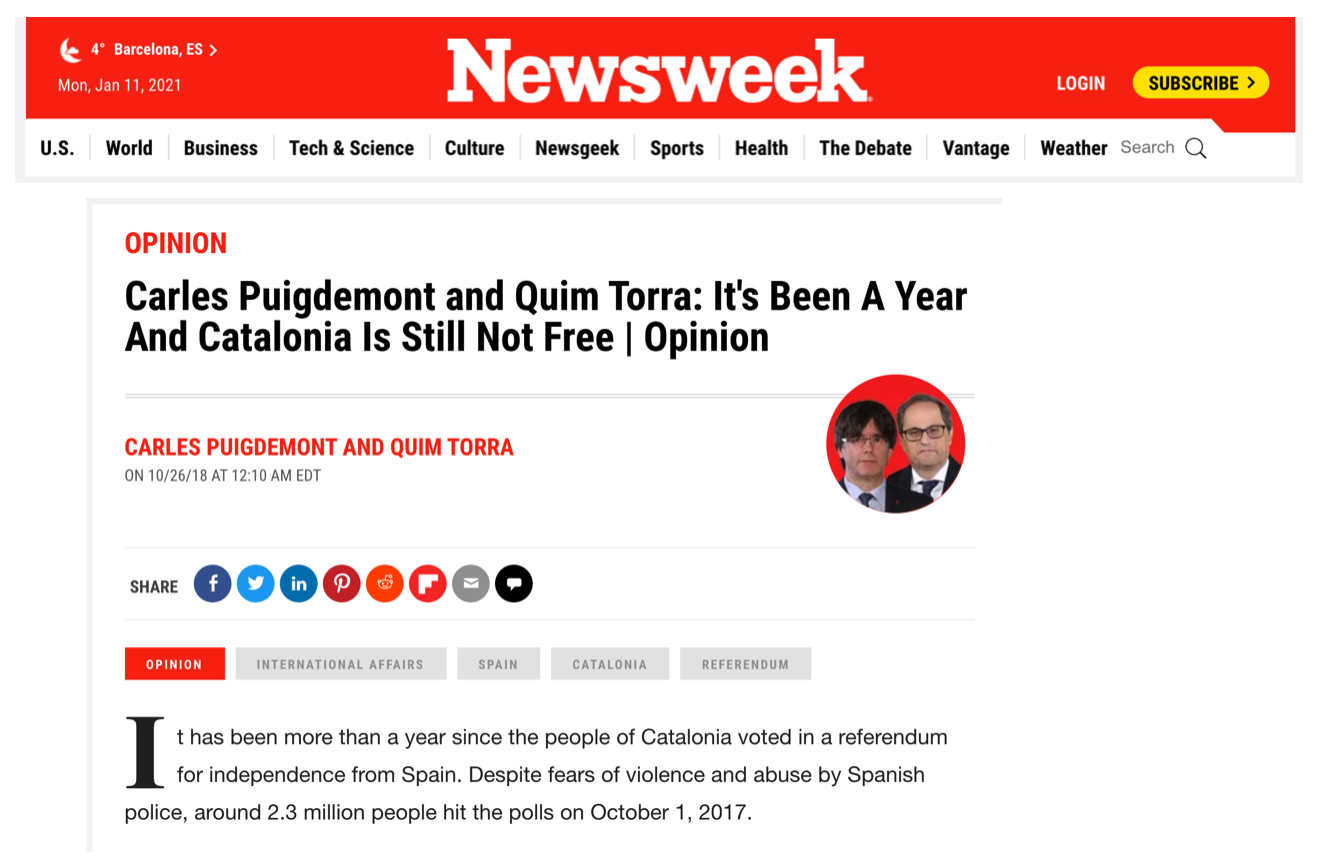
It's Been A Year And Catalonia Is Still Not Free
It has been more than a year since the people of Catalonia voted in a referendum for independence from Spain. Despite fears of violence and abuse by Spanish police, around 2.3 million people hit the polls on October 1, 2017.
It was clear that the fear was not as strong as the collective will to decide our own future. People of all ages risked their safety to defend those ballot boxes as if democracy itself was inside. In a big way, it was.
Contrary to the story presented in the media of two Catalonias, according to a survey in September 2017, 80 percent of the Catalan population believes that the future of Catalonia must be settled through a legally binding referendum. Catalans are united by the will to decide their future in a democratic way. But when will the Spanish government listen?
In a few days, some of our political prisoners will have spent one year in jail. One year behind bars without trial; their only "crime" was to support and to organize that referendum. According to the latest polls, around 80 percent of the Catalan population is against repression (as well as against the Spanish monarchy, by the way.)
We have been left with several key questions: Can a referendum be treated as a rebellion in a member state of the European Union? Can politicians be kept in jail or exile because they helped to organize a democratic event? Why has excessive police violence not been investigated in Spanish courts?
Fortunately, the decision to go into exile has allowed us to see how an independent justice system works: The German Court of Schleswig-Holstein rejected that the referendum could be considered as a rebellion or sedition, Belgium rejected the European arrest warrant and Switzerland did not even consider it. European justice sent a strong signal—will Spanish judges and prosecutors listen?
There is no question that going into exile is difficult, but it has been successful in showing the world the non-violent nature of the Catalan struggle and the lack of European standards when it comes to justice in Spain.
The EU's de facto tolerance of the violence last year, and over the existence of political prisoners and exiled leaders, sends an alarming message for the future of Europe. The use of physical force and repression against political rivals seems to be accepted as a legitimate tool.
According to the Spanish criminal code, organizing a referendum or declaring independence in a peaceful way is not a crime. Moreover, the right of self-determination is recognized in several international treaties that Spain ratified over the years. It is surprising that so-called independent judges treat the unity of the state as the highest concern, over human rights or democracy itself.
Despite the downfall of Mariano Rajoy as prime minister, one year after the referendum there is still a lack of concrete proposals from the Spanish Government, led by Pedro Sanchez. If they do exist, there is clearly a lack of will to implement them.
The political and media pressure against any proposal for Catalonia coming from the right-wing People's Party (PP) and Ciudadanos (Cs) is enormous, and difficult to resist without European support and mediation. King Felipe VI has been clearly so biased against Catalonia that he is not able to be the arbiter of Spanish democracy.
It is our belief that the right to self-determination in Catalonia needs to be recognized in order to find any political solution. And international mediation will certainly be needed.
A solution that is based on the principals of democracy and self-determination should always be more acceptable that the mere settlement of a political problem through force. This is all we want for Catalonia.